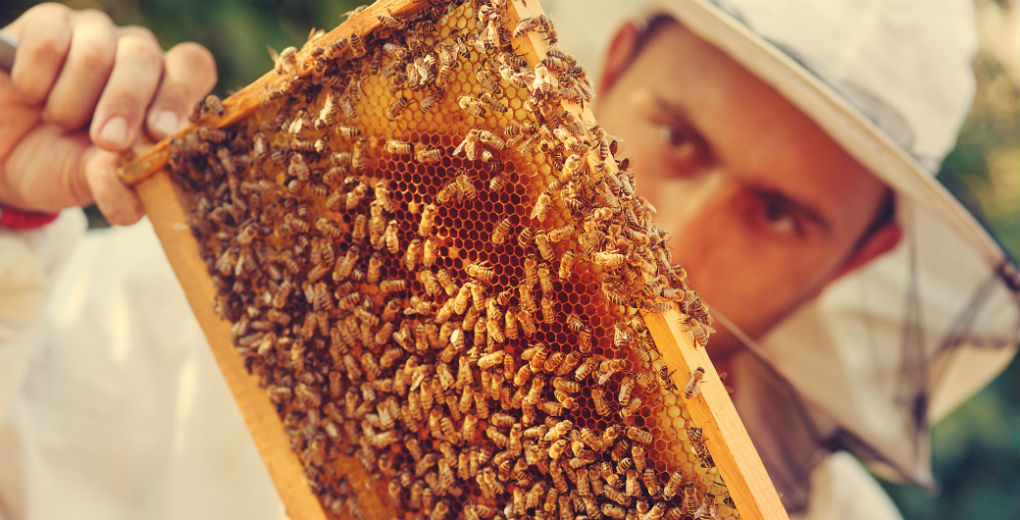
Cottage industry: could you make money from self-sufficiency?
It’s over 40 years since TV icons Tom and Barbara renounced capitalism to become self-sufficient Surbitonites in The Good Life.
But as employment squeezes and economic worries leave more of us feeling the financial pinch than ever, the idea of bringing back wholesome, traditional industries to supplement – or even entirely replace – our incomes is more tempting than ever.
Can you really live off the land? We take a look at how some modern Brits are making the most of nature’s bounty…
- Make money from honey
The British Beekeepers Association reported that honeybee colonies in England had declined by 14.5% in 2015, so keeping a hive or two is likely to be welcomed by your local environment – especially farmers, as bees have been estimated to contribute £65m a year to the UK economy through their pollination services.
What to consider: Honeybees live in colonies containing a single queen bee, a few hundred male bees and up to 50,000 female worker honeybees, so you’ll need enough outdoor space to keep a hive – preferably near to lavender and flowers, though they will fly up to five miles to find pollen.
Initial research is imperative, says Dr Reese Halter, author of The Incomparable Honeybee. “Before making any purchases, find a good book about bees and read up,” she says.
You don’t need expensive kit to get started – try a basic WBC hive, and look for second-hand suits and tools. But do make sure you’ve grasped the basics to avoid your bees escaping and causing injury or property damage – and make sure to arrange insurance, just in case.
Possible yield: Unlike bumblebees, which only produce enough honey to keep themselves alive, a single colony of honeybees can produce between 25lbs – 60lbs per season. Harvest honey in August, and replace it with a sugar solution to keep your bees going. As well as producing golden honey, consider making beeswax-based candles and beauty products which are popular at craft fairs and markets.
- Clean up with home-made soap
As well as saving money on the basics, making your own soap can offer an ideal business opportunity. Creative, hand-made products are a staple of craft fairs and online sites.
What to consider: Soap is made by reacting an acid – such as sunflower or olive oil – with an alkali, usually sodium hydroxide. There are plenty of recipes online, but you must use accurate measurements and follow instructions exactly to avoid accidentally making caustic soap – which could cause burns – or greasy soap which will fall apart.
Possible yield: Unlimited. With an almost endless combination of ingredients, scents and natural oils to add to your soaps, let your imagination run wild. Just make sure your business has Products Liability insurance, in case a customer alleges injury.
- Power your own home
Going “off the grid” might not be realistic for most of us, but you can certainly contribute to your home’s energy with self-sufficient power production – and you may even be able to sell surplus electricity back to the national grid.
What to consider: You’ll need an energy generator, probably powered by wind turbines, solar heating panels or photovaltic cells (solar electricity). The choice will be informed by your location – The Energy Saving Trust can help with advice and installation loans.
There will be some initial outlay of setting up your generators, both in monetary cost and carbon emissions, but working a reputable provider will avoid risking your safety, causing accidents or invalidating your insurance.
Possible yield: It’s predicted that up to 40% of our energy could be generated within the home by 2050, while those concerned about the environment will be glad to reduce reliance on fossil fuels and carbon emissions. By choosing the right technique for your location, you could yield all of your power for the year at a cost recoverable within 5-10 years – or just aim to replace a percentage of your power usage for a proportionally lower cost.
